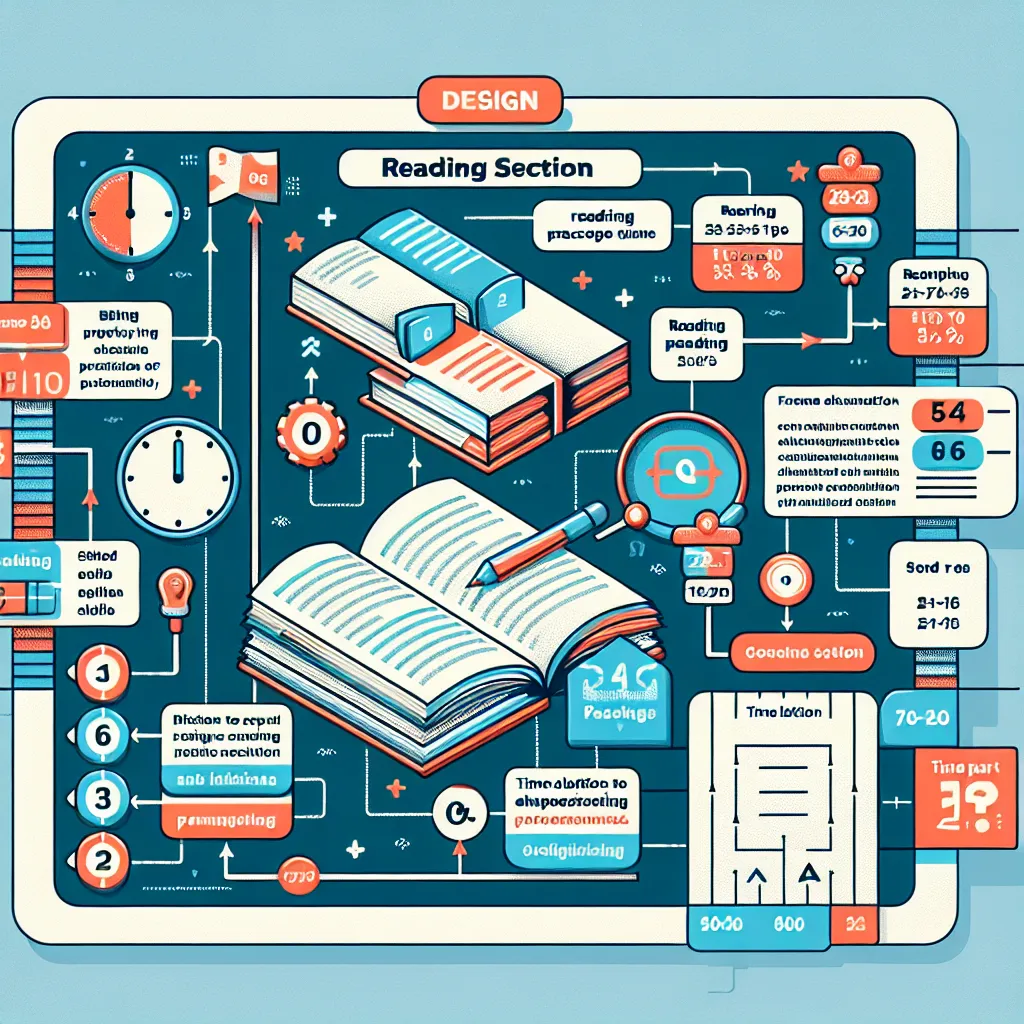Are you preparing for the IELTS exam and feeling overwhelmed by the reading section? You’re not alone. Many test-takers find this part challenging, but with the right strategies, you can significantly improve your performance. In this comprehensive guide, we’ll explore the best strategies for the IELTS reading section, helping you approach the test with confidence and maximize your score.
Understanding the IELTS Reading Section
Before diving into strategies, it’s crucial to understand what the IELTS reading section entails. This part of the test assesses your ability to read and understand various types of texts in English. It consists of three passages of increasing difficulty, with a total of 40 questions to be answered in 60 minutes.
 IELTS Reading Section Overview
IELTS Reading Section Overview
Types of Questions You’ll Encounter
The IELTS reading section includes various question types:
- Multiple choice
- True/False/Not Given
- Matching headings
- Sentence completion
- Summary completion
- Diagram label completion
- Short answer questions
Understanding these question types is the first step in developing effective strategies to tackle them.
Best Strategies for IELTS Reading Success
Now, let’s explore the most effective strategies to improve your performance in the IELTS reading section.
1. Skimming and Scanning Techniques
Skimming and scanning are essential skills for the IELTS reading test.
- Skimming: Quickly read through the passage to get a general idea of its content. Focus on the first and last sentences of each paragraph, headings, and any highlighted text.
- Scanning: Look for specific information in the text, such as dates, names, or numbers. This is particularly useful for answering detail-oriented questions.
Practice these techniques regularly to improve your speed and accuracy.
2. Time Management
With only 60 minutes to answer 40 questions across three passages, time management is crucial.
- Allocate about 20 minutes per passage.
- Spend no more than 5 minutes skimming the text and questions.
- Leave 2-3 minutes at the end to review your answers.
Remember, all questions are worth the same, so don’t spend too much time on any single question.
3. Read the Questions First
Before diving into the passage, quickly read through the questions. This strategy helps you:
- Know what information to look for in the text.
- Understand the context of the passage better.
- Save time by focusing on relevant parts of the text.
4. Develop Your Vocabulary
A strong vocabulary is essential for understanding complex texts. To improve:
- Read widely in English, including academic texts, newspapers, and scientific articles.
- Keep a vocabulary journal and review new words regularly.
- Use context clues to guess the meaning of unfamiliar words.
5. Practice Paraphrasing
IELTS reading often tests your ability to understand paraphrased information. The correct answer may not use the exact words from the passage.
- Practice rewording sentences while maintaining their original meaning.
- Look for synonyms and alternative expressions in the questions and answers.
6. Use Keywords to Your Advantage
Identify keywords in both the questions and the passage to quickly locate relevant information.
- Underline or circle key terms in the questions.
- Look for these terms (or their synonyms) in the passage.
This strategy is particularly useful for matching and true/false/not given questions.
 IELTS Reading Keyword Strategy
IELTS Reading Keyword Strategy
7. Improve Your Reading Speed
The more efficiently you can read, the more time you’ll have to answer questions. To improve your reading speed:
- Practice timed reading exercises regularly.
- Use a finger or pen to guide your eyes while reading.
- Try to reduce subvocalization (the inner voice that “reads” words in your head).
8. Answer All Questions
There’s no penalty for incorrect answers in IELTS, so make sure to answer every question, even if you’re unsure.
- If you’re running out of time, quickly skim the remaining questions and make educated guesses.
- Use any contextual clues or partial information you’ve gathered to inform your choices.
9. Be Aware of Distractors
IELTS reading questions often include distractors – information that seems relevant but doesn’t answer the question correctly.
- Read each question carefully to understand exactly what is being asked.
- Cross-check your answers with the passage to ensure accuracy.
10. Practice, Practice, Practice
The most effective way to improve your IELTS reading score is through consistent practice.
- Use official IELTS practice materials and past papers.
- Time yourself to simulate exam conditions.
- Analyze your mistakes and focus on improving weak areas.
Common Pitfalls to Avoid
Be aware of these common mistakes that can affect your IELTS reading score:
- Spending too much time on difficult questions.
- Not reading the instructions carefully.
- Failing to manage time effectively across all three passages.
- Overlooking key information due to rushing.
- Not transferring answers correctly to the answer sheet.
Next Steps: Putting Strategies into Action
Now that you’re familiar with these strategies, it’s time to put them into practice:
- Create a study schedule focusing on regular reading practice.
- Start with easier texts and gradually increase difficulty.
- Take timed practice tests to improve your speed and accuracy.
- Join IELTS study groups or forums to share experiences and tips with other test-takers.
- Consider enrolling in an IELTS preparation course for more structured guidance.
Conclusion
Mastering the IELTS reading section requires a combination of effective strategies, consistent practice, and a strong foundation in English. By implementing the techniques discussed in this guide, you’ll be well-equipped to tackle the challenges of the test and achieve your desired score. Remember, improvement takes time, so be patient with yourself and stay committed to your study plan. Good luck with your IELTS preparation!


